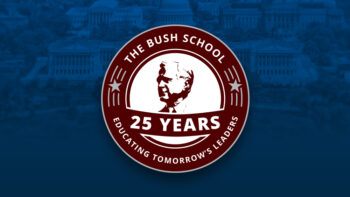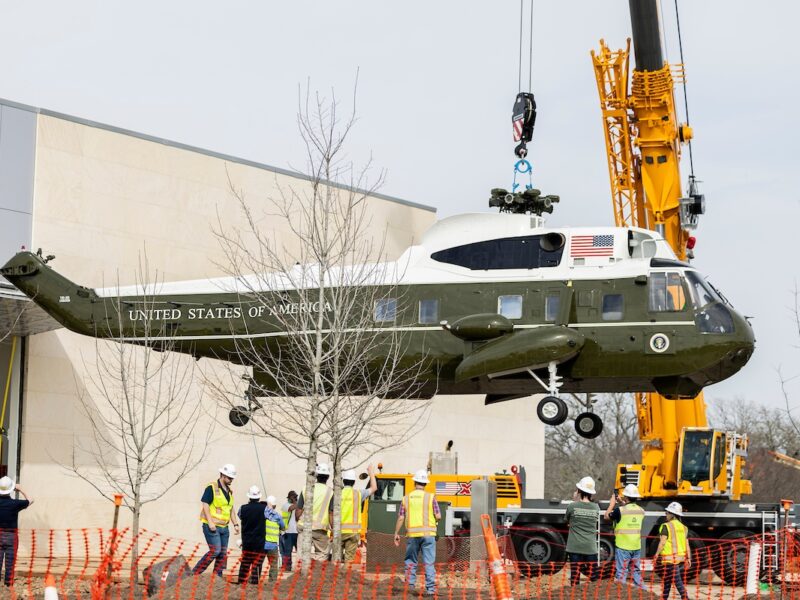Former Senior Staff Reflect On Working In Bush White House

Before President George H.W. Bush took the oath of office, he sent his marching orders to every member of his staff. Among the long list of directives: Think big, challenge the system and adhere to the highest ethical standards.
“That’s what he sent out to all of us helping him building this administration that would make a difference, and I can say that that commitment was truly infectious,” said Andrew Card, Bush’s secretary of transportation from 1992 to 1993, during a conversation this week with former White House senior staffers who served during the 41st president’s term.
Hosted by the Bush School of Government and Public Service’s Scowcroft Institute of International Affairs, the event featured several former staff members who shared their experiences working in the Bush White House as part of the 25th anniversary celebration of the Bush School.
Card, who also worked under President Ronald Reagan and would go on to serve as President George W. Bush’s chief of staff, said the elder Bush had come to office “fully prepared” for the role after serving as vice president, CIA director and ambassador to China.
“He knew what it meant to understand the burden of someone who works in the White House, and he was empathetic to those who work in government to help make a difference,” Card said.
Several of the former staffers noted the one-term president came into office with a well-defined agenda and clear idea for how he wanted his White House to function. His first chief of staff, John Sununu, said the president insisted on a tone of collegiality.
“Establishing a process that magnified that collegiality allowed the president to have a staff that took the agenda he had and dealt with all the processes involved in a White House, from defining the policy to communicating the policy to the public and to Congress, and then getting things put together,” Sununu said. “George Bush was a one-term president, but he was a great president who had a lasting impact.”
Jim Cicconi, who served as the assistant to the president and as staff secretary from 1989-1990, shared a similar sentiment: “There’s a very strong case to be made that President Bush accomplished more in four years than most presidents have accomplished to date.”
Much of this can be credited to the type of person Bush was, Cicconi said: both “incredibly smart” and able to hold vast amounts of information in his head on a variety of subjects without becoming overwhelmed.
Cicconi described Bush as a conscientious worker and a “clean desk guy.”
“You’d send him paper and you would get it back with his comments and his instructions,” Cicconi said. “I gave him homework to take with him to the residence every evening, and I’d get buzzed at about 6:30 every morning to come up and collect the stuff that he stayed up working on. If you go to Camp David on the weekend, he took a huge amount of files and paper with him and he brought it back, it didn’t disappear into some black hole or get scattered around the office.”
Panelists who also shared stories of their time in the White House included David Bates, a former personal aide during Bush’s first campaign; Fred McClure, associate vice president for leadership and engagement at Texas A&M University and Bush’s former assistant for legislative affairs; Roger B. Porter, the assistant to the president for economic and domestic policy from 1989 to 1993; and Chase Untermeyer, Bush’s assistant as vice president from 1981-1983 and later assistant to the president and director of the office of presidential personnel from 1989-1991.





